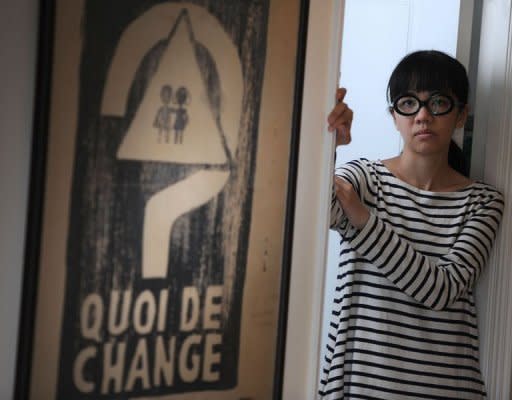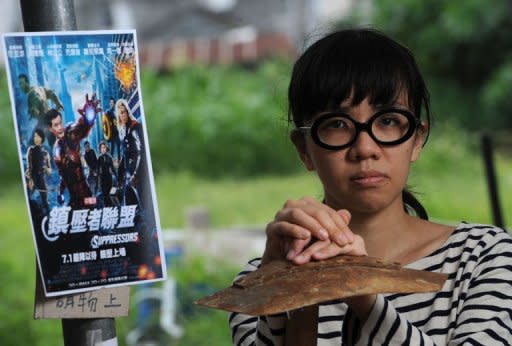Hong Kong artists cry foul over copyright bill
A plan to toughen Hong Kong's copyright law has sparked protests from artists, who say it will stifle free speech, criminalise satire and threaten the city's growing status as a major arts hub. More than 1,700 artists have signed a petition urging the government to shelve proposed amendments to the Copyright Act, while pro-democracy lawmakers have launched a filibuster campaign to delay its passage into law. "The proposed law will create an environment of fear and will lead artists to self-censor themselves," performance artist and graphic designer Ger Choi, one of the organisers of the petition, told AFP. Some petitioners claim the amendments are politically motivated, after candidates in a March leadership poll were viciously -- and humorously -- parodied in social media including Facebook and various blogs. Chief executive-elect Leung Chun-ying was mocked as a comic-book super hero from the new Hollywood blockbuster "The Avengers", while his rival, Henry Tang, was depicted as Margaret Thatcher in the "Iron Lady". Artists fear that creating such commentary based on copyrighted material will be a criminal offence under the new law, planned at a time when the city is cementing its status as a regional arts hub, illustrated by the glittering Hong Kong International Art Fair that opened Thursday. At present, copyright infringement occurs when the work causes significant damage to the copyright holder, but the government wants to broaden the rules to cover any re-use that could "affect prejudicially" the owner. It also updates the law for the digital age by criminalising "any unauthorised communication of copyright works" on the Internet. Such moves are welcomed by some. In April the Hong Kong Motion Pictures Industry Association complained that pirated movie clips posted on the YouTube video sharing site resulted in losses of $308 million. But others say that the amendments are heavy-handed and open to strict interpretations that could stifle creativity and erode the semi-autonomous city's cherished freedoms. They are also dumbfounded at the government's suggestion that artists should obtain consent from the copyright holder if they want to create a derivative work. "Are they saying Duchamp should get permission from da Vinci before he creates the Mona Lisa parody? We wouldn't have seen the work if that was the case," Choi said, referring to Marcel Duchamp's Mona Lisa with a moustache. "We wonder whether these bureaucrats come from Mars," added the artist, who also sits on the government's Arts Development Council. Songwriter and film director Calvin Poon agreed that the city -- a regional powerhouse of cinema and pop music -- needed modern copyright laws. But he said the bill threatened to throw the baby out with the bath water. "If we don't protect our intellectual property, we will be on the losing end eventually," said the winner of the Best Original Song prize at the recent Hong Kong Film Awards. "Our copyright laws are outdated and reforms are needed... The question is how we could promote freedom and at the same time make our laws on par with international standards." The Copyright Act already allows for "fair dealing" with a protected work for education purpose or "criticism, review and news reporting", as long as "sufficient acknowledgement" is made of the original material. But Choi said this was not enough. "We want a clear exemption for secondary creation. We want a comprehensive review of the Copyright Act," she said. The government has promised to listen to the artists' concerns, but it says the proposed legislation makes no mention of parody and will not place further limitations on artists' freedom to create secondary works. "This Bill is very important to Hong Kong. It updates our copyright law and it is not intended to deal specifically with parody," Commerce and Economic Development Secretary Gregory So said. "In fact, if you review the amendment that we are proposing, there is not even one single provision dealing with parody. It is not meant to restrict freedom of expression or speech." No form of artistic endeavour that does not currently incur criminal liability will be criminalised if lawmakers pass the amendments as they stand, he added.



